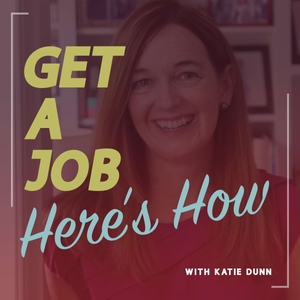
Ep. 15 - Exploring empathy through movement and story-telling
04/20/23 • 36 min
While he was studying dance in New-York, he made a 6-minute dance short film, Waiting for Color, about the violations of human rights of LGBT people in Chechnya. “It was really a very personal work. I think every artist is lucky if they have two or three of these works in their life, when you feel so moved to create something that it doesn't matter if it is with a budget or without, but you feel like you are really drawing the inspiration out of thin air and you feel so sure that this is the project that you were made to create.”
“There is something about art, in general, when it is done in a truthful way, that just makes you stop in your tracks.” Organisations working with human rights can learn a lot from dance as dance is about growing together. Dance is a conversation where you invite the other person, you take risks together and then you finally “become fabulous” and go further together than you would have gone alone. “Sometimes you need to find that flexibility and freedom to feel that we are moving forward.”
While he was studying dance in New-York, he made a 6-minute dance short film, Waiting for Color, about the violations of human rights of LGBT people in Chechnya. “It was really a very personal work. I think every artist is lucky if they have two or three of these works in their life, when you feel so moved to create something that it doesn't matter if it is with a budget or without, but you feel like you are really drawing the inspiration out of thin air and you feel so sure that this is the project that you were made to create.”
“There is something about art, in general, when it is done in a truthful way, that just makes you stop in your tracks.” Organisations working with human rights can learn a lot from dance as dance is about growing together. Dance is a conversation where you invite the other person, you take risks together and then you finally “become fabulous” and go further together than you would have gone alone. “Sometimes you need to find that flexibility and freedom to feel that we are moving forward.”
Previous Episode

Ep. 14 - Humour is the most powerful way to get your message across!
Moana Genevey, the guest of this episode, is a Senior Policy Officer at Equinet at day, and a stand-up comedian at night.
By doing the European Master in Human Rights and Democratisation, she had for the first time a sense of belonging and a sense of legitimacy. The master created career opportunities working for human rights (e.g., paid traineeships, work as co-Secretary General of the EMAlumni Association, network of people and opportunities...). Her hope regarding organisations working on human rights is that we will bridge the gap between theory and practice as this would have more impact. She also thinks that human rights education would be more efficient if the students were in touch early on with groups that are affected by human rights violations.
She entered the world of stand-up comedy through improv theatre that she started in 2021. Having some knowledge on feminism, anti-racism, intersectionality and equality, really helps her to filter what she is saying on stage. She uses her knowledge to write things that are the safest possible. She started applying her gender lens to her comedy work, because “it was the first time ever that I entered a professional world where sexism was so prevalent.”
She finds strength in the collective and created a feminist collective to create a support system for stand-up comedians who are not the standard stand-up comedian and support shows made by women. She noticed that when women and gender minorities feel in a safe environment, where they are supported and encouraged, they are funnier.
Next Episode

Ep. 16 - Being curious keeps me energised!
Our guest, Inge Jacobs, is currently leading sustainability for Mars Food, focusing both on human rights and livelihoods as well as climate and water use in Mars Food supply chains. In her job, she uses not only the lenses of human rights but also the ones from sustainability, gender and ecology.
Curiosity is the red thread throughout her career. She keeps looking at new opportunities and networks, and kept on learning, adding a master in public health to her Master in Human Rights. The master gave her the theoretical framework and knowledge, and the opportunity to study with people from different countries and different backgrounds.
What she wishes she had known when she graduated: there are so many different possibilities to work on human rights. “I would like to do the Master again, now with all the experience that I have from my professional life, because I would look at it in a very different way.”
Inge has 3 main pieces of advice for graduates interested in working for the private sector:
- Be curious! Being curious is what helps Inge stay energized and learn new things.
- Connect with people and build your network! Building your network is critical not only for accessing different roles, but also for learning new things and learning about innovations. “If you build your network and you connect with people, I think it will really help you broaden your scope and your view on what is possible and what could be done.”
- Be flexible and adaptable! Do not be afraid to change! Do not be afraid to try different things. If it doesn't work, you just do something else.
If you like this episode you’ll love
Episode Comments
Featured in these lists
Generate a badge
Get a badge for your website that links back to this episode
<a href="https://goodpods.com/podcasts/the-road-less-traveled-260392/ep-15-exploring-empathy-through-movement-and-story-telling-30705890"> <img src="https://storage.googleapis.com/goodpods-images-bucket/badges/generic-badge-1.svg" alt="listen to ep. 15 - exploring empathy through movement and story-telling on goodpods" style="width: 225px" /> </a>
Copy





